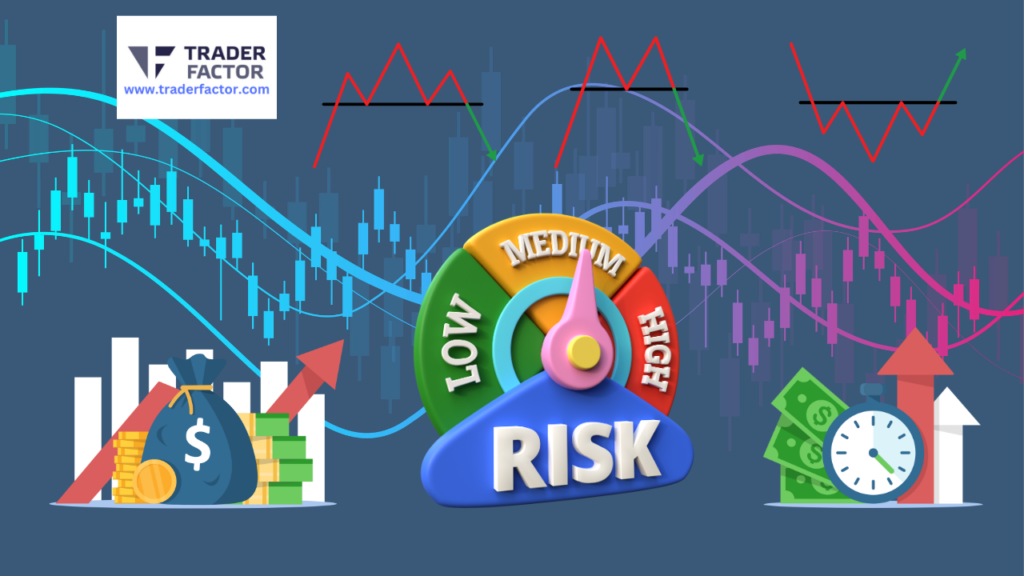Looking to make profitable trades in the forex market? In 2024, there are four techniques you need to know.
Did you know that quantitative trading algorithms have a success rate of over 70%? This statistic alone makes them a must-have tool in your trading arsenal.
Another technique gaining popularity is artificial intelligence in forex trading. With AI’s ability to analyze vast amounts of data and make accurate predictions, it’s no wonder traders are seeing impressive profits.
High-frequency trading strategies are also worth exploring, as they take advantage of market fluctuations in real time.
Lastly, don’t forget the importance of risk management and money management techniques to protect your investments.
Stay ahead of the game and master these top four techniques for profitable forex trading in 2024.
Key Takeaways
- Quantitative trading algorithms and AI-powered systems are highly successful in forex trading, with a success rate of over 70%.
- High-frequency trading (HFT) strategies, which involve executing a large number of trades within a short period, can capitalize on market liquidity and generate profits.
- Effective risk management techniques, such as position sizing and setting stop loss orders, are crucial for protecting capital and ensuring long-term participation in forex trading.
- Proper money management techniques, including determining risk per trade and using a risk-reward ratio, optimize profitability and safeguard trading capital.
Quantitative Trading Algorithms

If you want to maximize your profits in forex trading, you should consider implementing quantitative trading algorithms. These algorithms, also known as automated trading systems, use mathematical models and predefined rules to execute trades.
By removing the emotional aspect of trading, these algorithms can help you make better decisions and take advantage of market opportunities.
One of the key advantages of using quantitative trading algorithms is the ability to backtest strategies. Backtesting involves testing a trading strategy using historical data to see how it would have performed in the past.

This allows you to assess the profitability and risk of a strategy before deploying it in the live market. By analyzing past data, you can refine and optimize your strategies to increase your chances of success.
Automated trading systems also offer the benefit of speed and efficiency. These algorithms can analyze large amounts of data and execute trades in fractions of a second. This speed advantage can be crucial in capturing fleeting opportunities in the forex market, where prices can change rapidly.
Artificial Intelligence in Forex Trading

Harness the power of artificial intelligence to revolutionize your forex trading strategy in 2024. Machine learning applications have paved the way for advanced trading systems that can analyze vast amounts of data and make informed decisions in real time.
These automated trading systems leverage AI algorithms to identify patterns, trends, and correlations that human traders may overlook.
By incorporating machine learning into your forex trading strategy, you can benefit from its ability to adapt and learn from historical data. These algorithms can continuously refine their trading models, allowing them to make more accurate predictions and improve performance over time.

One of the major advantages of using AI in forex trading is its ability to process large amounts of data quickly. These systems can analyze market conditions, news events, and economic indicators in real time, enabling them to make faster and more informed trading decisions.
Furthermore, automated trading systems powered by AI can eliminate human emotions from the trading process. Emotions such as fear and greed often cloud judgment and lead to irrational trading decisions. By relying on AI, you can ensure that your trades are based on data-driven analysis rather than emotional impulses.
High-Frequency Trading Strategies

To maximize your trading potential in 2024, implement high-frequency trading strategies that leverage the speed and efficiency of automated systems. High-frequency trading (HFT) involves executing a large number of trades within a short period, taking advantage of small price fluctuations.
This strategy relies heavily on automated trading systems that can analyze vast amounts of market data and execute trades in milliseconds.
One of the key benefits of HFT is its ability to capitalize on market liquidity. Liquidity refers to the ease with which an asset can be bought or sold without causing a significant price change. HFT strategies thrive in liquid markets because they can quickly enter and exit positions without disrupting prices.

Furthermore, automated systems can continuously monitor market conditions, identify profitable opportunities, and execute trades instantly.
To implement HFT strategies effectively, it’s crucial to have access to advanced technology infrastructure and low-latency trading platforms. These tools ensure that your trades are executed swiftly and efficiently.
Additionally, it’s essential to have a robust risk management system in place to mitigate potential losses in fast-paced trading environments.
Risk Management and Money Management Techniques

Implementing effective risk management and money management techniques is crucial for your successful forex trading in 2024.
One of the key aspects of risk management is position sizing, which involves determining the appropriate amount of capital to allocate to each trade.
By carefully considering your risk tolerance and the potential impact of a loss, you can ensure that you don’t risk too much on any single trade. This can help protect your account from significant losses and allow you to stay in the game for the long term.

Another important element of risk management is stop loss placement. A stop loss is an order that you place to automatically exit a trade if it reaches a certain level of loss.
By setting a stop loss at an appropriate level, you can limit your potential losses and protect your capital. It’s crucial to determine the optimal placement for your stop loss based on your trading strategy and market conditions.
In addition to risk management, money management techniques are equally important. These techniques involve managing your overall trading capital and determining how much to risk on each trade.
By implementing proper money management techniques, such as setting a maximum risk per trade or using a risk-reward ratio, you can protect your capital and optimize your profitability.
Frequently Asked Questions

What Are the Most Common Indicators Used in Quantitative Trading Algorithms?
When it comes to quantitative trading algorithms, the most common indicators used are sentiment analysis and moving averages. These tools help traders analyze market trends and make informed decisions for profitable forex trading.
How Does Artificial Intelligence in Forex Trading Account for Geopolitical Events?
Artificial intelligence in forex trading accounts for geopolitical events by analyzing social media’s impact on forex trading. Machine learning plays a crucial role in predicting market trends, helping traders make informed decisions.
Are There Any High-Frequency Trading Strategies That Work Well in Volatile Markets?
In volatile markets, high-frequency trading strategies can be challenging. The impact of market volatility on these strategies can be significant. However, in stable markets, high-frequency trading strategies tend to work well.
What Is the Recommended Risk Management Approach for Beginner Forex Traders?
As a beginner forex trader, it is crucial to follow the recommended risk management strategy. Understanding essential risk management principles will protect your capital and minimize potential losses in the volatile forex market.
How Do Money Management Techniques Differ for Short-Term and Long-Term Forex Trading Strategies?
Money management techniques differ for short-term and long-term forex trading strategies. In short-term trading, you may prioritize quick gains and use tighter stop-loss orders. In long-term trading, you may focus on preserving capital and use wider stop-loss orders.

Profitable Forex Conclusion
In conclusion, the forex trading landscape is constantly evolving, and it’s crucial for traders to stay updated with the latest techniques.
Quantitative trading algorithms, artificial intelligence, high-frequency trading strategies, and effective risk management techniques are all key factors for profitable forex trading in 2024.
By implementing these strategies, traders can increase their chances of success and navigate the dynamic forex market with confidence.
Disclaimer
All information has been prepared by TraderFactor or partners. The information does not contain a record of TraderFactor or partner’s prices or an offer of or solicitation for a transaction in any financial instrument. No representation or warranty is given as to the accuracy or completeness of this information. Any material provided does not have regard to the specific investment objective and financial situation of any person who may read it. Past performance is not a reliable indicator of future performance.
FOLLOW US




No comments:
Post a Comment